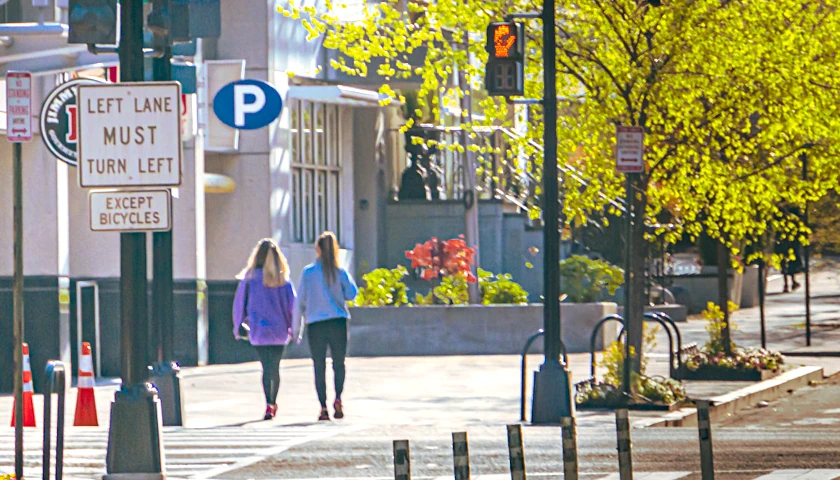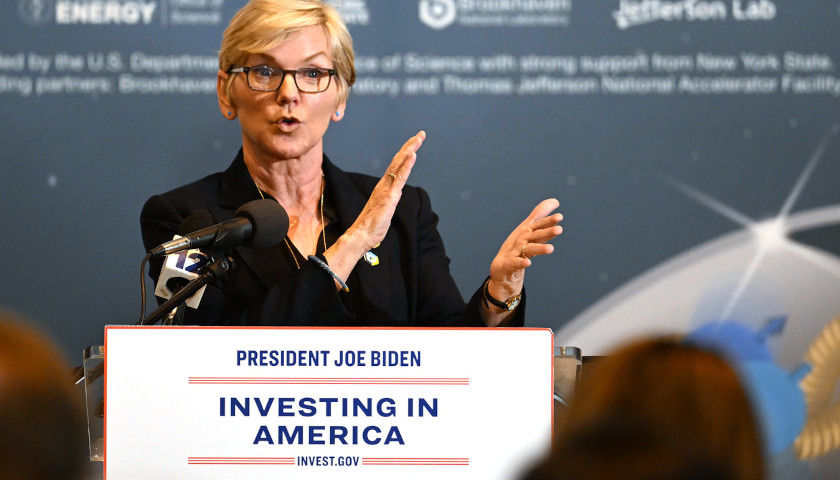by Greg Piper
Three years after COVID-19 vaccines became widely available to adults – at which point the CDC already knew they couldn’t stop transmission – courts are finally starting to put their foot down on the most basic legal question: Are mandates at least applied fairly, if not scientifically?
The 10th U.S. Circuit Court of Appeals not only knocked down the University of Colorado medical school’s original and revised 2021 mandates for discriminating against employees seeking religious exemptions, but knocked the trial judge for “abuse of discretion” by reversing the burden of proof to moot the case.
The Anschutz campus, whose dental school recently created a diversity, equity and inclusion award, made an early pivotal decision on COVID vaccine mandates by scrutinizing the content as well as sincerity of beliefs among employees and students seeking exemptions.
“The Administration’s September 1 Policy is not neutral on its face; the September 24 Policy is not neutral in practice; and both substantially burden” the religious exercise of the anonymous 11 female and six male plaintiffs, according to the majority opinion by Judge Allison Eid, who replaced Neil Gorsuch when President Trump appointed him to the Supreme Court.
“It is manifestly unreasonable to think” the Sept. 24 policy “would reach precisely the same results … by accident,” Eid wrote. “The Administration had spent weeks or months drafting and implementing a policy hostile toward and discriminatory against certain religions, only to adopt a new, purportedly neutral policy that reached precisely the same results.”
University of California San Francisco epidemiologist Vinay Prasad celebrated the ruling for recognizing CU Anschutz administrators “set an indefensible policy,” while the plaintiffs’ lawyers at the Thomas More Society thanked the court for recognizing the university’s “value judgments … reeked of religious bigotry” and violated constitutional rights and “basic decency.”
The ruling is reminiscent of the Supreme Court’s narrow finding against the Colorado Civil Rights Commission for “official expressions of hostility to religion” when it punished Masterpiece Cakeshop owner Jack Phillips for declining to make custom wedding cakes for gay couples based on his Christian view of marriage.
In the private sector, a high-profile vaccine mandate lawsuit by an actor fired from the Fox show “911” is heading to trial over whether Disney-owned 20th Television trampled Rockmond Dunbar’s views as a follower of the Church of Universal Wisdom, which The New York Times profiled in 2003 for its utility in circumventing childhood vaccination mandates.
“It appears that Disney vetted exemption applications on a case-by-case basis, investigating whether the religions constituted true religious institutions and whether applicants actually followed the beliefs,” according to The Hollywood Reporter.
The court docket shows the parties held settlement talks April 3, to no avail. An April 5 joint status report says Dunbar is “eager for his day in court” as early as this summer, which “will help to repair his reputation and allow him to move forward with his life,” while 20th mocked his “baseless assertions” and said it already has “at least” eight trials through March 2025.
U.S. District Judge Dolly Gee set Dunbar’s trial for Jan. 14, 2025, given the “woefully disparate trial dates” each suggested.
In February, Los Angeles Superior Court Judge Stephen Goorvitch ordered a trial to determine whether fired father-and-son “General Hospital” crewmembers James and Timothy Wahl, who ran the show’s “construction shop and special effects department,” had “genuine religious beliefs” and whether ABC could have “reasonably accommodated” them without an “undue hardship.”
The next hearing is a June 7 “post-mediation status conference.”
Litigation is approaching resolution as evidence continues to mount that COVID vaccines have an unfavorable harm-benefit profile for certain demographics, and possibly for a broader range of people than previously thought.
Researchers at American, British, Canadian, Egyptian, Mexican, Russian and Saudi institutions laid out evidence that “adding 100% of N1-methyl-pseudouridine (m1Ψ) to the mRNA vaccine in a melanoma model stimulated cancer growth and metastasis” in the May issue of Elsevier’s International Journal of Biological Macromolecules.
The discovery that pseudouridine “increases RNA stability while concurrently dampening the anti-RNA immune response” led to a search for derivatives with “enhanced characteristics” to make COVID vaccines work properly, according to the peer-reviewed paper, some parts of which are hidden behind a paywall.
But the high percentage of this modification in mRNA vaccines is “inhibit[ing] essential immunological pathways, thus impairing early interferon signaling,” they wrote.
“Within the framework of COVID-19 vaccination, this inhibition ensures an appropriate spike protein synthesis and a reduced immune activation,” the paper says, recommending that future clinical trials use mRNA vaccines “with the lower percentage of m1Ψ modification.”
The senior author of a Thai study reviewed in the Elsevier paper, of mice with melanoma that were injected with either natural or modified RNA, told The Epoch Times their study found the former associated with “robust anti-tumor immunity” without suggesting the latter “promotes tumor formation,” just that it “did not induce [interferon] type I production.”
While Chulalongkorn University microbiology professor Tanapat Palaga said the Elsevier paper took his team’s results “out of the context [sic],” the Elsevier authors told the Times their own paper had been misunderstood. It does not say mRNA vaccines cause cancer, but rather that “they could stimulate its development” based on “experimental and clinical data.”
The CU Anschutz plaintiffs are suffering “ongoing, irreparable First and Fourteenth Amendment injuries” that “outweigh any public interest against a preliminary injunction,” which President Obama appointee U.S. District Judge Raymond Moore should have granted, Eid wrote.
Anschutz officials refused to grant religious exemptions “unless an applicant could convince the Administration that her religion ‘teaches [her] and all other adherents that immunizations are forbidden under all circumstances,'” the opinion said, referring to the Sept. 1, 2021, policy.
Only Christian Scientists and Jehovah’s Witnesses could meet that threshold, and the administration rejected exemptions en masse by Roman Catholics, Buddhists, Eastern Orthodox, evangelical Christians, “non-denominational Protestants, and applicants who did not specify whether they were affiliated with a particular religious organization.”
It fired one woman, told another she had to resign to keep her medical license, denied accommodations to another four women, forced three women and four men to work remotely, and cut another woman’s pay by 10%.
Anschutz officials pivoted three weeks later when they got legal threat letters from Thomas More Society lawyers.
The Sept. 24 policy allowed religious exemptions for employees – but not students – unless they would “unduly burden the health and safety” of the community. Officials still rejected all employees’ requests, firing or putting clinical staff on indefinite paid leave while imposing the same remote work and pay-cut conditions on the others.
While several plaintiffs told the 10th Circuit they no longer need relief, and the university invited others back to campus despite no change in their vaccination status, the three-judge panel determined “at least one plaintiff still has a personal stake” in blocking both policies as an employee, keeping the suit live. (The last remaining student plaintiff is leaving school.)
The university’s argument to moot the case for the two women it fired under the Sept. 1 policy would mean any state could require “all state employees” be Roman Catholic, “rush to enforce it by firing Protestants, Buddhists, Jews, atheists, and others; nominally repeal the policy, without rehiring anybody; and then claim any suits for injunctive relief were moot,” Eid wrote.
Another four women remain “under- or entirely unemployed” under the Sept. 24 policy, so their case isn’t moot either.
Judge David Ebel issued a partial concurrence and dissent, agreeing with his colleagues the Sept. 1 policy was unconstitutional but not the Sept. 24 policy, which “did not involve any of the challenged inquiries into exemption applicants’ religious beliefs” but only “an objective evaluation focusing just on whether each applicant’s job duties could be performed remotely.”
– – –
Greg Piper is a reporter for Just the News
Photo “COVID Vaccine Protest” by Anthony Crider.








